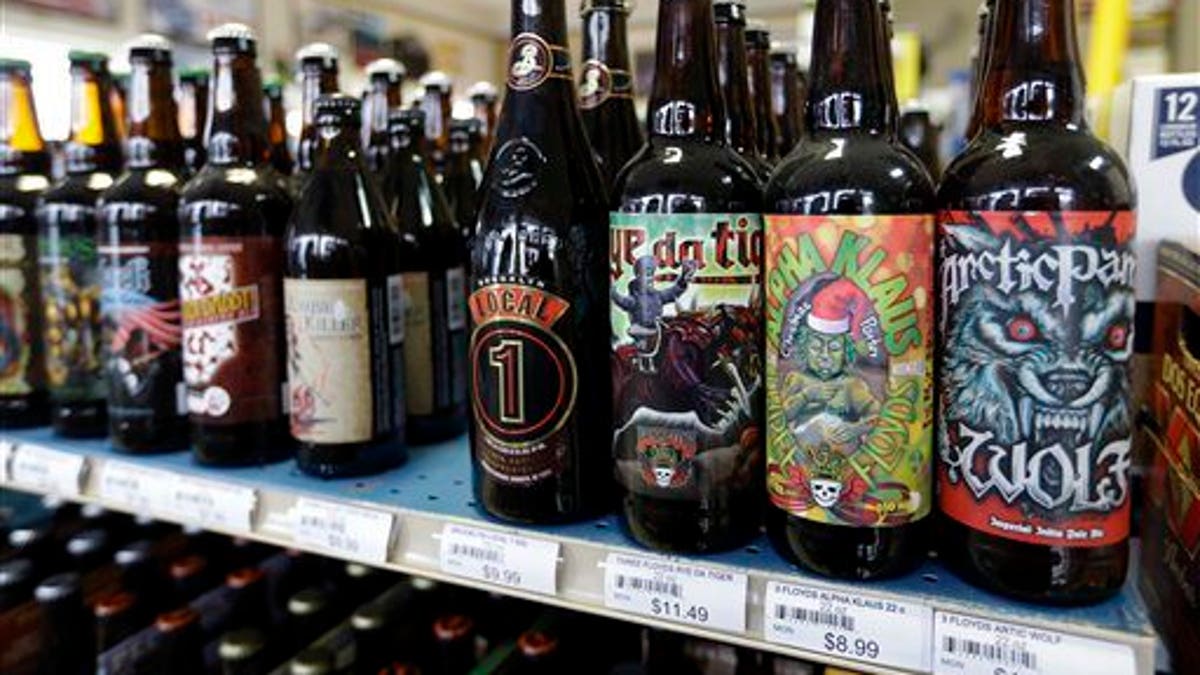
A selection of craft beer in an Indiana beverage store. (AP Photo)
It’s no shocker that the craft brew industry has been flooded with an abundance of new beers over the past few years. But apparently some brewers are having trouble finding an original name, and that struggle is leading to a slew of legal battles, reports NPR’s The Salt.
The brewers association estimated that the U.S. has over 3,000 breweries across the country—that's 60 breweries per state, if divided evenly. So who has the right to be Alabama Ale or Mississippi Milk Stout?
"There are only so many words and names that make sense with beer, so it's not surprising that many people will come up with the same ideas," Candace Moon, a San Diego based lawyer who specializes in helping brewers trademark names and settle legal disputes, told The Salt. She believes that none of the brewers are purposefully infringing on trademarks, but with an over saturated American beer market it “happens all the time.”
Search for the clever—but obvious—named brews like “Hopscotch” or “Bitter End” and you’ll see multiple beers bearing the same moniker. Usually it’s not a big deal, but when similarly named beers hit the market from brewers that are geographically close, a problem often arises, according to Moon.
Avery, a brewery in Colorado, and Russian River in California found out they both has a beer named “Salvation.” In true craft brewer spirit, the owners got together and created a signature custom blend called Collaboration not Litigation.
But not every dispute ends so amicably. In 2013, SweetWater Brewing Co. sent Lagunitas Brewing Co. a cease and desist letter, ordering that the Petaluma brewery stop using “420”—a marijuana symbol—on bottle artwork.
Brewers can trademark both names and artwork but in the U.S., breweries are lumped together with wineries and distilleries meaning that beer makers have to compete with existing wine and spirits companies for a unique name.
Moon says that many brewers incorrectly assume that because they have registered a business in a certain location, their name is automatically trademarked.
"When you build a brand name or invest money in merchandise, it can be upsetting to be forced to change it," Moon writes on her website. "Protect your trademarks early with help from a knowledgeable lawyer."
